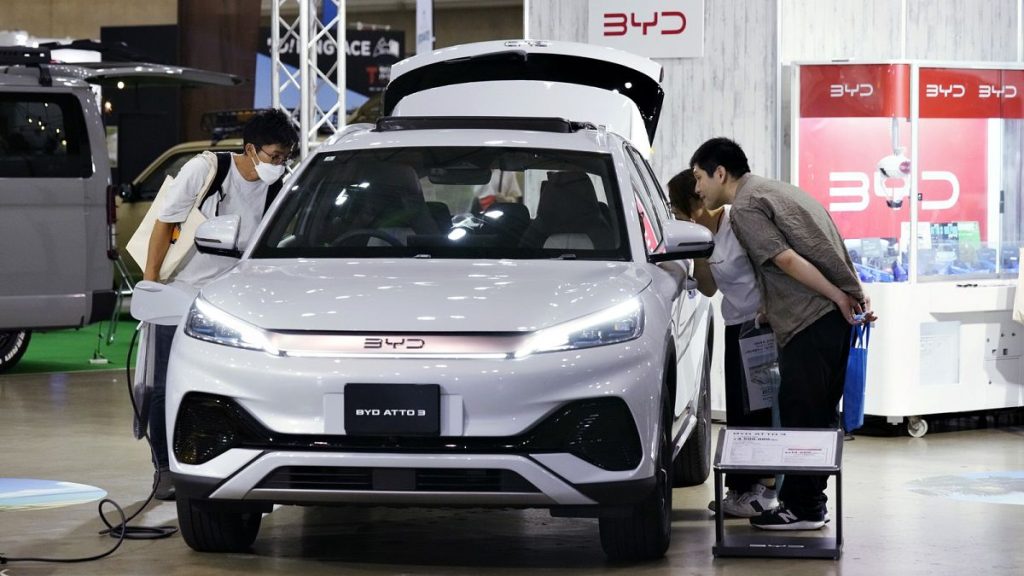Trade tensions between the EU and China have escalated as Beijing filed a lawsuit against the European Union with the World Trade Organization (WTO) regarding the tariffs imposed on Chinese electric vehicles. The EU argues that these tariffs are necessary to counteract the financial aid provided by Beijing, which allows Chinese EVs to be sold at artificially low prices in global markets. The tariffs, ranging from 7.8% to 35.3%, on top of an existing 10% levy, have been implemented by the European Commission and will remain in place for five years. China has expressed its opposition to these measures, calling them protectionist and unfair, and has filed a lawsuit under the WTO dispute settlement mechanism to challenge the EU’s decision.
While China has threatened retaliation against the EU’s dairy, brandy, and pork industries in the past, they have not announced any new tit-for-tat steps in response to the tariffs on electric vehicles. Instead, China has expressed a willingness to continue negotiations with the European Commission in order to find a solution that could potentially reverse the tariffs. Germany, in particular, has favored this approach and hopes to establish minimum prices for Chinese EVs as part of the negotiations. However, EU officials warn that enforcing minimum prices for a product as complex as electric vehicles could be challenging for customs officials. Despite the ongoing discussions, the Chinese Chamber of Commerce to the EU has criticized the tariffs as arbitrary, unjustified, and politically motivated, raising concerns about the impact they could have on the negotiations.
The European Commission has defended its investigation into Chinese electric vehicles as fact-based, diligent, and in line with WTO rules. The findings of the investigation, released in June, served as the legal basis for the import tariffs on Chinese EVs. The Commission argues that due to Beijing’s financial aid, Chinese electric vehicle producers have significantly increased their market share in Europe, posing a threat to the EU’s car industry. Senior EU officials have warned about the potential closure of plants and the loss of thousands of jobs in the European automotive sector if action is not taken to address the issue. Despite the ongoing trade tensions, the EU remains committed to finding a solution through negotiations with China, although the path forward remains uncertain.
The Chinese Ministry of Commerce has criticized the EU’s anti-subsidy investigation on Chinese electric vehicles as unfair competition disguised as fair competition. China has urged the EU to reconsider its decision and continues to take all necessary measures to safeguard the interests of Chinese companies. While China has not announced any retaliatory measures against the EU in response to the tariffs on electric vehicles, the filing of a lawsuit with the WTO demonstrates China’s commitment to challenging the EU’s trade practices. The ongoing trade dispute between the EU and China highlights the complex nature of international trade relations and the challenges of balancing competing interests in the global marketplace.
The European Commission has emphasized the importance of protecting the EU’s automotive industry from the threats posed by Chinese electric vehicle producers. The Commission’s decision to impose tariffs on Chinese EVs is seen as a necessary step to prevent EU firms from being pushed out of the increasingly competitive market. Despite criticism from China and concerns about the impact of the tariffs on negotiations, the EU remains committed to finding a resolution through dialogue and negotiation. The outcome of the dispute between the EU and China will have significant implications for the future of trade relations between the two economic powers and could set a precedent for how similar disputes are resolved in the future.













